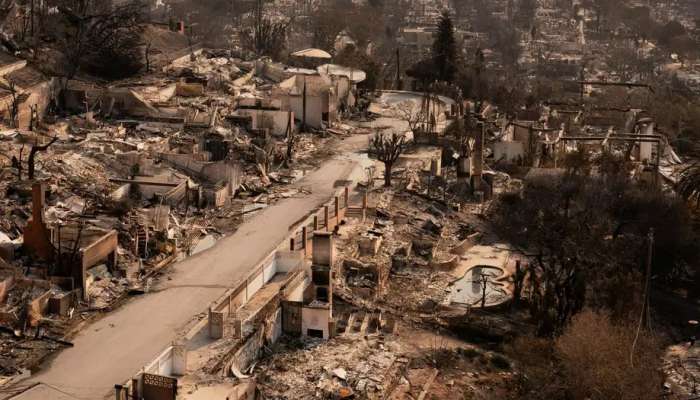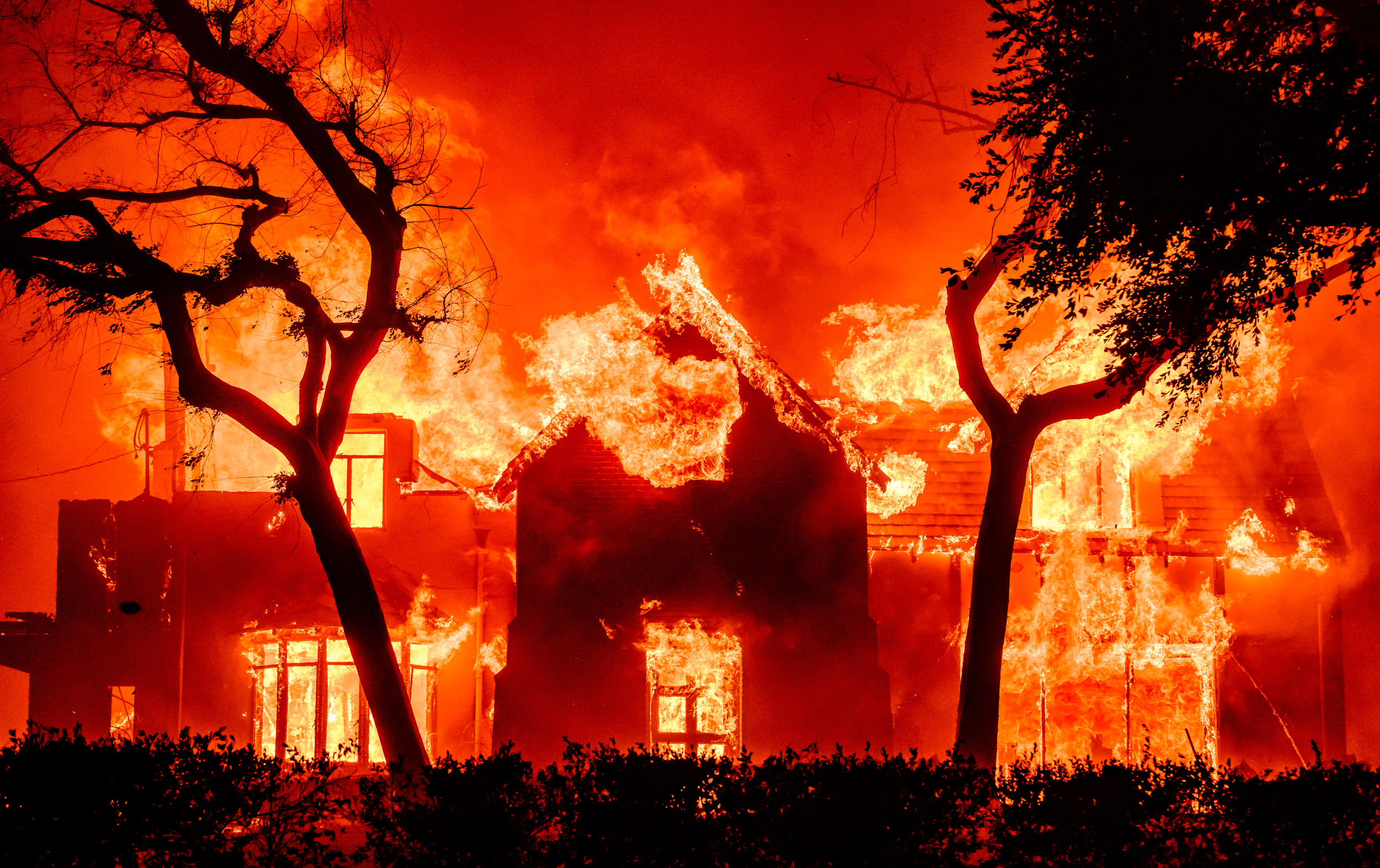





The recent wildfires in Los Angeles have brought to light the escalating insurance crisis exacerbated by climate change. On January 7, 2025, these fires destroyed at least 16,000 structures and forced thousands to evacuate, with damages estimated at a staggering $250 billion. This catastrophic event has prompted California officials to announce a yearlong moratorium on insurance companies dropping policyholders, highlighting the urgent need for reform in the insurance sector [14c40291].
As climate change continues to intensify, homeowners in high-risk areas are facing declining access to insurance. Reports indicate that average non-renewal rates for policies are 80% higher in high-risk regions compared to low-risk areas. The Treasury Department's recent report underscores the rising costs and challenges posed by climate-related events, particularly in California, where the insurance market is struggling to keep pace with the increasing frequency and severity of natural disasters [2d52ab89].
Homeowners' insurance premiums have seen a dramatic increase, tripling from an average of $536 in 2001 to $1,411 in 2021. This surge reflects the broader trend of rising costs associated with climate change, making insurance increasingly unaffordable for many [14c40291]. Experts like Moira Birss and Paula Jarzabkowski have pointed out the flaws in the current insurance system, emphasizing that traditional models are becoming obsolete as natural disasters grow more frequent and severe [14c40291].
In 2024, U.S. economic losses from natural disasters reached $217.8 billion, marking an 85.3% increase from $117.5 billion in 2023, the highest annual losses since 2017. Significant contributors to these losses included Hurricanes Helene and Milton, which caused $75 billion and $25 billion in damages, respectively. Insured losses also rose significantly, climbing 36% to $112.7 billion [60c28dd1]. Globally, total losses amounted to $368 billion, a 7.3% decline from 2023 but still 14% above the average since 2000, indicating a significant protection gap [60c28dd1].
The rising costs of construction materials and labor have further complicated the situation, increasing replacement costs by 55% from 2020 to 2022. This inflation in rebuilding expenses, coupled with the heightened frequency of natural disasters, has led to increased insured losses. The recent Los Angeles fires are projected to be among the costliest in U.S. history, with losses expected to exceed $100 billion, further straining the insurance market [56f39407][d2194459].
In response to these challenges, potential solutions are being explored, including comprehensive insurance plans and climate-proofing infrastructure. However, experts stress that insurance premiums must accurately reflect the true exposure to climate risks to ensure that both homeowners and insurers can navigate the evolving landscape of natural disasters and financial stability [2d52ab89]. Without these adjustments, the insurance market may struggle to provide adequate protection in the face of increasing climate-related threats [255bb108].